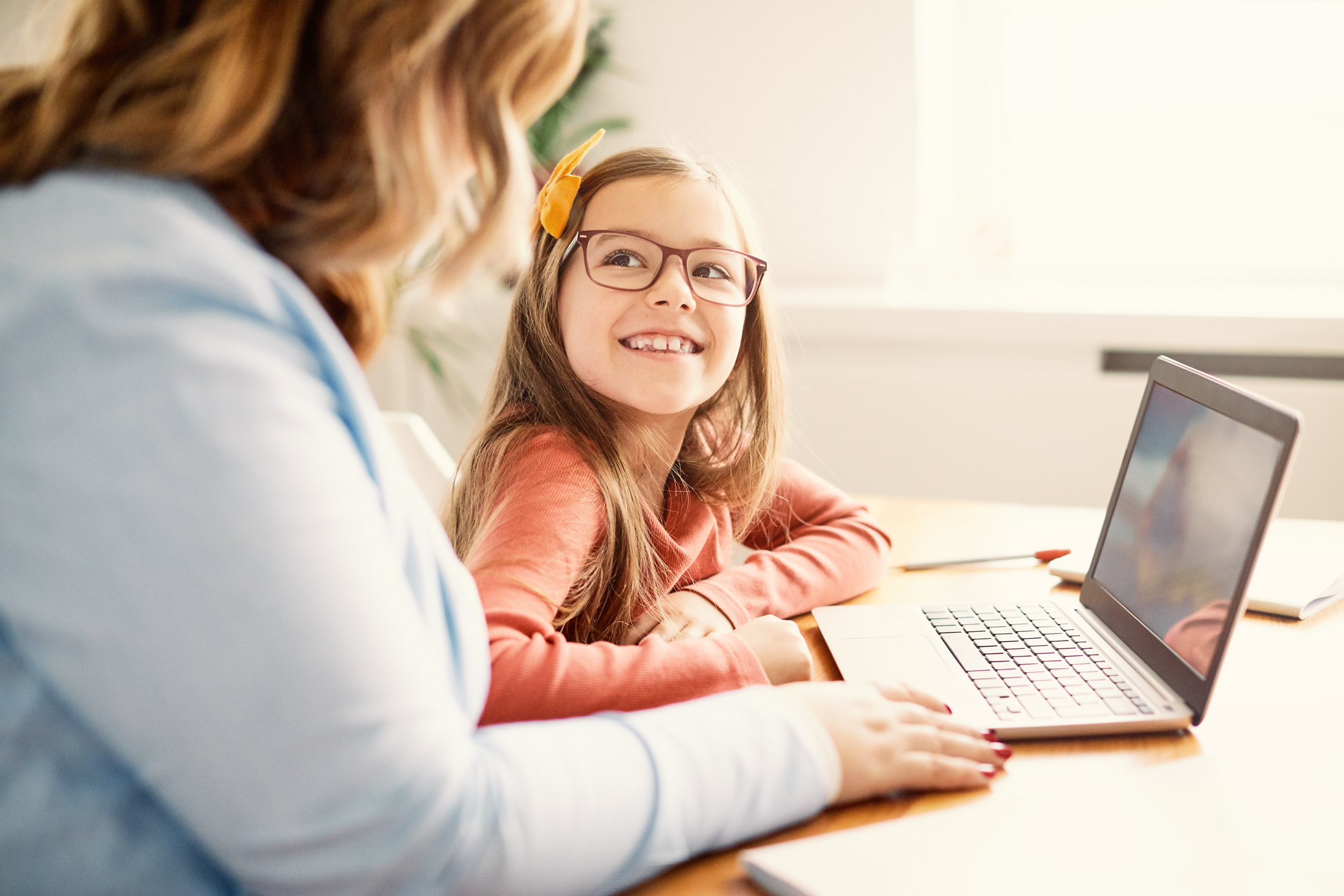
According to the American Academy of Child & Adolescent Psychiatry (AACAP), children aged 8-12 in the United States spend four to six hours each day either watching or using screens (and that’s not counting e-learning screen time during COVID for children learning remotely).
Is that healthy? How much time is too much?
The AACAP says that for children who are at least 6 years old, what’s most important is to “encourage healthy habits and limit activities that include screens.” Although that answer may not be as definitive as parents may like, the reality is that not all screen time is alike. Time spent learning about math concepts for school or watching aquatic biology for science class can’t be compared to watching content that includes, for example, this list of inappropriate content, per the AACAP:
- Violence and risk-taking behaviors
- Videos of stunts or challenges that may inspire unsafe behavior
- Sexual content
- Negative stereotypes
A key step for parents is to be clear about what programming is being watched, ensure that it’s appropriate, and talk to your children about what they’re watching. This includes, when applicable, any advertising they may be exposed to. It’s important to have parental control over what specific apps they have access to and use the appropriate content privacy restrictions that come with each app.
Also, create a family structure that allows for a healthy balance between screen time and non-screen time, encouraging plenty of physical activity. Music, art and hobbies that don’t rely upon screens can also round out your children’s experiences.
When making decisions about the amount of time your school-age children can spend in front of a screen, you may decide that they won’t be allowed during family meals or times when you’re participating in non-screen family activities, such as a board game. Use parental controls for technology appropriately, as well, and have all screens turned off 30 to 60 minutes before children’s bedtimes, or however much time is needed to ensure a good night’s rest.
Problems with Too Much Screen Time
Excessive screen time can make it difficult for your children to sleep well, which in turn can make schoolwork more challenging. Plus, every hour spent looking at a screen is one less hour of reading a book, exercising, interacting with family and friends, and so forth. In addition, there is a risk of developing myopia (short-sightedness), something that’s already been observed with the increased use of screens.
Screen Time During COVID
According to Reid Health, screen time usage has increased by 60% during the pandemic. To some degree, this can simply be what’s needed. After all, if a child who normally attended school in person is now doing all of their learning remotely, screen time will naturally go up significantly. Plus, children who might normally visit grandparents, friends, and more might find themselves on Zoom calls to keep in touch with people of importance.
To help, the American Academy of Pediatrics has provided a tool that allows families to create a Family Media Plan. You can follow a series of prompts with this free tool to create a structure that works for each individual child.
Additionally, the Office of Educational Technology lists benefits of technology when used appropriately—and so it may help to determine if the screen time your children are engaging in fits into one or more of these categories:
- Tool for learning
- Increased access of learning opportunities
- Strengthening relationships for children, whether among parents/families or educators
They also note that technology is best when adults and peers “interact or co-view with young children.”
In short, because each child (and each situation) is unique, the sweet spot of screen time will also be unique. Fortunately, these tools and guidelines can help you to create an optimal situation for your children.
Horizon Education Centers: Here to Help
Our staff provides children with a wide range of enriching educational programming and recreational activities, using screen time strategically without reliance upon it. Here is more information about our school-aged child care and a list of our locations.








